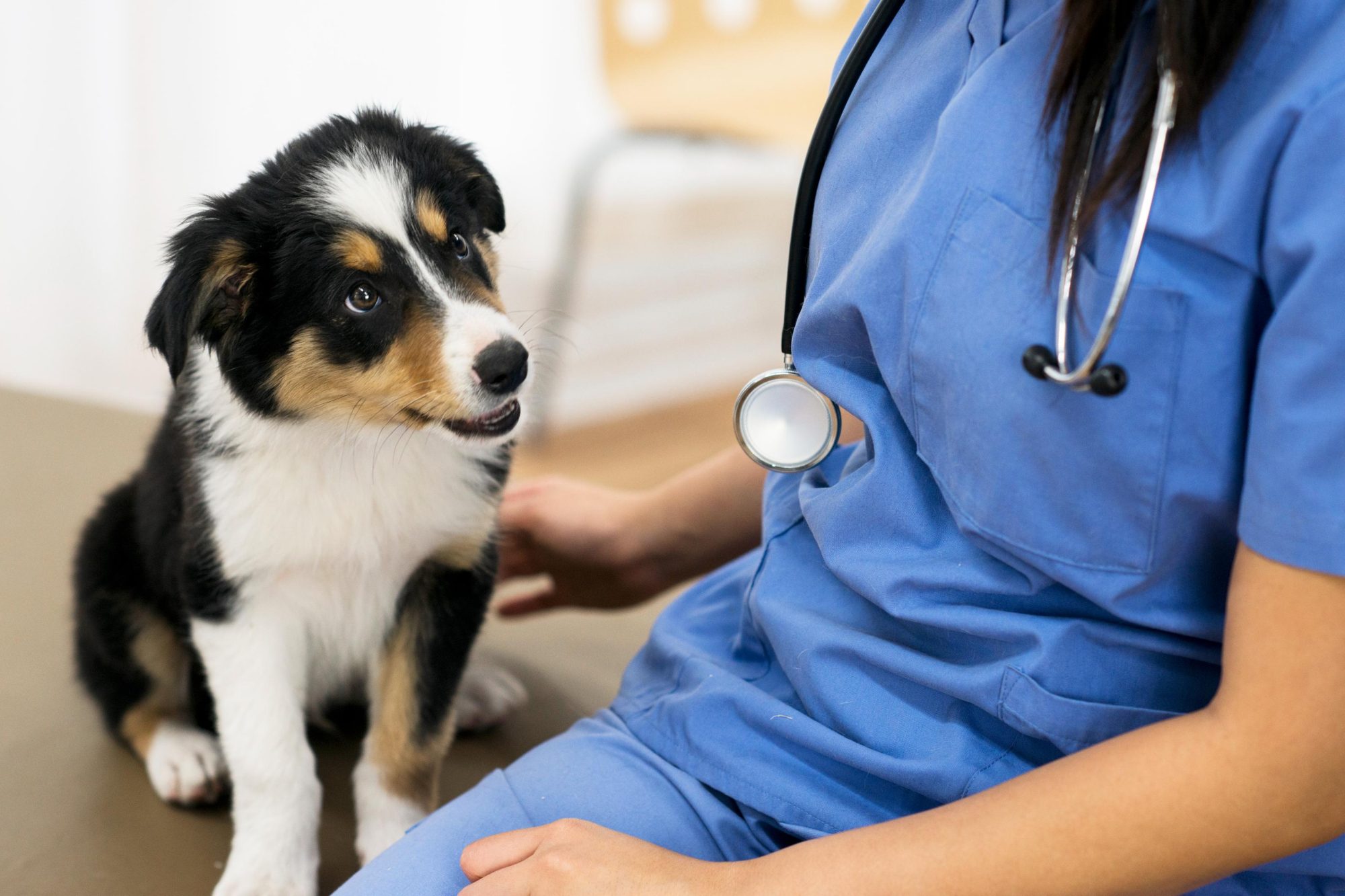The Importance of Wellness Checks For Canines

It might seem counterintuitive to have your dog examined when they appear perfectly healthy, but regular appointments are crucial to their overall care. Assessing the appearance and behavior of a healthy pet provides a fuller understanding of, and appreciation of, their vitality. As they age, dogs change in very gradual and subtle ways. Our wellness checks for canines can reveal areas that need help, detect problems before they worsen, and support lifelong health and happiness.
Frequency of Exams
In their first year, puppies are seen several times to receive full vaccinations, parasite prevention medication, behavioral support, dental care, spay/neuter surgery, microchip, and anything else that may come up. After that, we typically see adult dogs once a year until they show a need for routine checks every 6 months or so (usually around age 7). Since senior dogs face numerous health conditions, it is important to increase frequency as a way to thwart developing issues.
Developing a Baseline
While certain breeds share similar health challenges, such as brachycephalic breeds or those known to have certain genetic disorders, every dog is unique. Because there is no one-size-fits-all approach to canine well checks, we tailor our methods to each individual patient.
When we see a dog when they are fit, trim, and healthy, we have a special opportunity to determine a baseline of optimal health. If future visits reveal anything that veers away from this baseline, we can zero-in on possible reasons for this change. In this way, we can stay ahead of potential health conditions long before they cause problems for dogs.
What You Can Expect
While every dog wellness check is different, we typically approach every exam with at least two goals in mind. First, we want to prevent health conditions. Second, we aim to spot early indicators of disease as early as possible so that we can successfully treat symptoms and defer other possible issues.
A full medical history is reviewed and discussed at every canine wellness check. If you have notes regarding concerning behavior or lifestyle changes, we take the time to address the following:
- Vaccine history
- Recent travel
- Pre-existing medical problems
- Eating, drinking, bathroom habits
- Exercise routine
- Possible exposure to ticks and other parasites
- Nutrition, weight, gait, and stance
Providing a stool sample is necessary to rule out intestinal parasites. A thorough nose-to-tail exam includes:
- Listening to the heart and lungs
- Palpating the abdomen for swelling or pain
- Assessing the muscle structure of the limbs
- Checking the eyes, nose, teeth, gums, nails, ears, skin, and coat
Depending on age, routine blood work, urinalysis, and imaging may be suggested.
Why Should My Dog Get a Wellness Check?
Early detection and treatment of disease is often less taxing and invasive for dogs, and can be less expensive than treating a full-blown, or advanced illness.
As your partners in your dog’s health care, we hope you’ll call Curem Veterinary Care at (480) 787‑0544.
